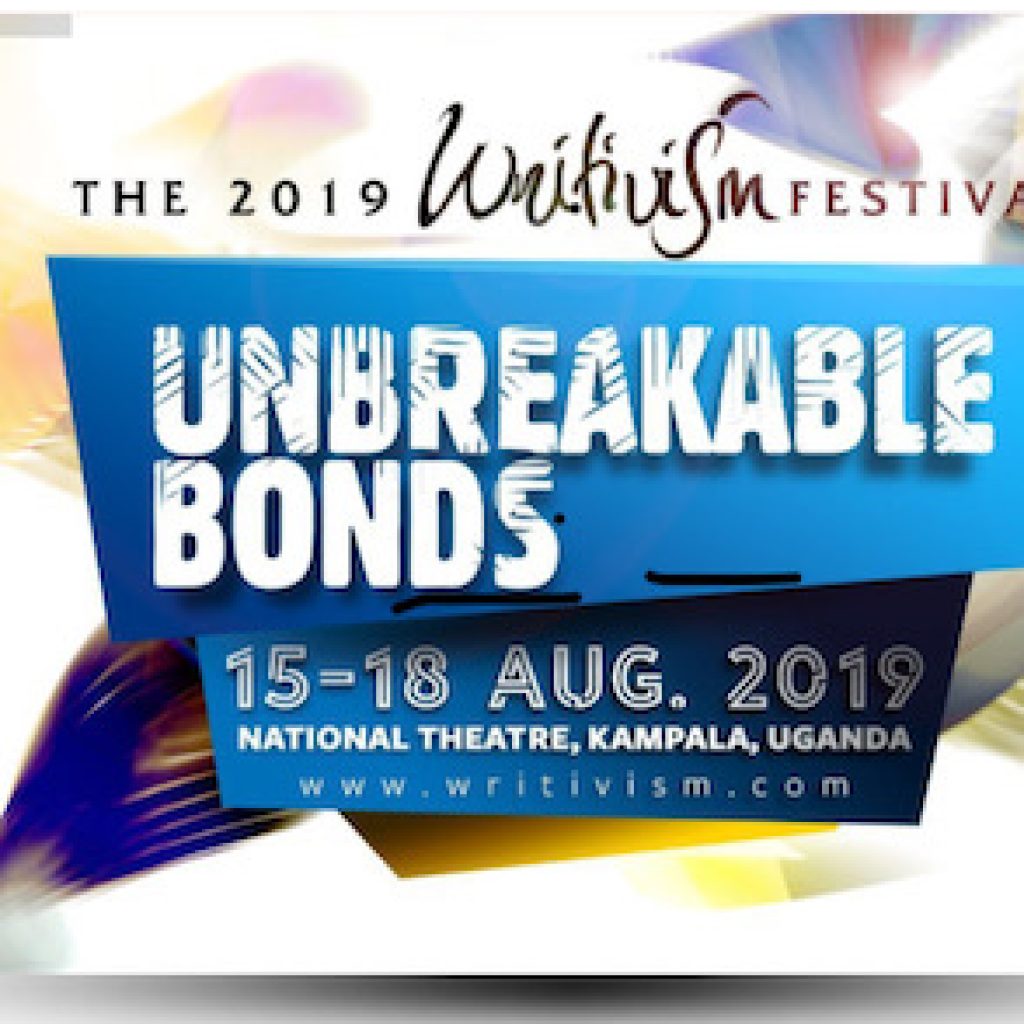Writivism Literary Festival is back at the historic National Theatre in Kampala, Uganda. This year’s events will take place on August 15 -18, 2019, showcasing the continent’s best-known authors and book enthusiasts. Events will include book launches, performances, and panel discussions. In addition, prizes for the Writivism Short Story and the Kofi Addo Prize for Creative Non-Fiction will be handed out. I had the chance to read the shortlisted stories, and immediately, I was struck by how well each author engaged the theme: Unbreakable Bonds. The fiction writers centered their stories on the failures of parenthood; and the creative non-fiction writers explored identity weighed down by grief.
The three authors shortlisted for the Writivism fiction prize are South Africa’s Vuyelwa Maluleke, Resoketswe Manenzhe, and Nigeria’s Frances Ogamba. The first thing that catches your eye in Vuyelwa Maluleke’s story, Tale, is the tension between mother and daughter. The main conflict here is toxic motherhood driven by religious fanaticism. The author casts her gaze on a mother who uses scripture to crumple her daughter into obedience. It is a compact story that punches hard, particularly on themes of spirituality, abuse, beauty, and failure.
Similarly, Resoketswe Manenzhle’s memorable and haunting story Maserume also looks at the supernatural. She focuses on the discord between a community and a dead baby. Her story treads lightly in its approach to the subject matter of undesirable girl children, sacrifices, and rumors. It is a spooky tale that leaves you both curious and paranoid.
Rounding out the fiction shortlist is Nigerian author, Frances Ogamba, who also appears on the Creative Non-fiction list. Her short story, Ghana Boy, is a masterpiece; it examines a family living under the duress of a rebellious son. Ghana Boy torments his parents and his community with violence and untamed delinquency. Despite it all, his mother holds out hope. The story is told from the perspective of Ghana Boy’s younger brother; who maintains an excellent balance of showing Ghana Boy’s humanity and his belligerence. It is a story that stays with you long after you’ve put it down.
Also, Ogamba’s talents are on full display in her non-fiction essay, Valley of Memories, a meditation on grief and history. It contains themes of the return; in which unpleasant historical events resurface to poke at those who try to ignore them. Ogamba uses the idea of reincarnation to comment on the discomfort of bearing another’s fate. This discomfort extends to history in which there is a certain unease in dredging up memories of things that caused collective harm. It is a gripping essay on collective amnesia—it takes the position that unpalatable historical events need to be remembered, honored, and properly laid to rest. Reclaiming these legacies honors the dead and promotes reconciliation between history and the present.
The other two essays also examine themes of loss and family ties: Writers Eugene Yakubu and Kanyinsola Olorunnisola frame loss as an existential crisis. Yakubu’s work, How to Wear Your Body, discusses the body as a site of illness and letdowns. This essay is incredibly multilayered touching on conflicts between gender identity and community acceptance. It also looks at illness and coming to terms with change. His acute observations allow us to see the individual working through their many emotions: resignation, defiance, and self-love.
Lastly, the Comedian by Kanyinsola Olorunnisola also reflects on grief, particularly sudden death. Haunted by memories of a loving parent, the author finds it difficult to move on and grieve. His emotional paralysis unsettles him; pushing him to conclude that God is the ultimate comedian, dispensing with life at random will. The essay is quite confessional with some of the passages written as journal entries. Overall the tone of the piece communicates feelings of disbelief, sadness, and anger.



